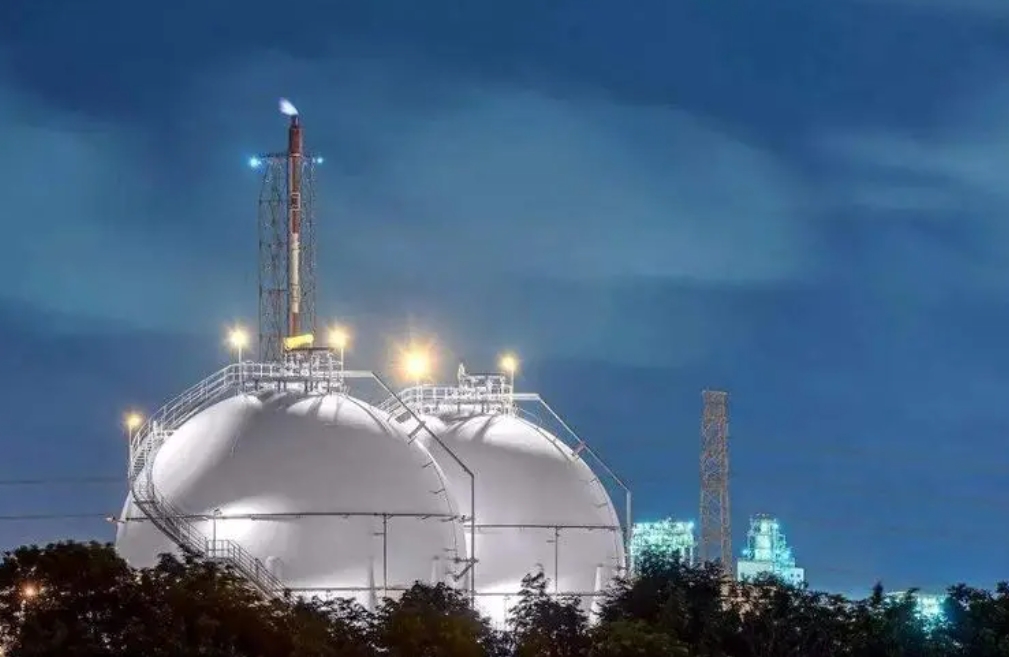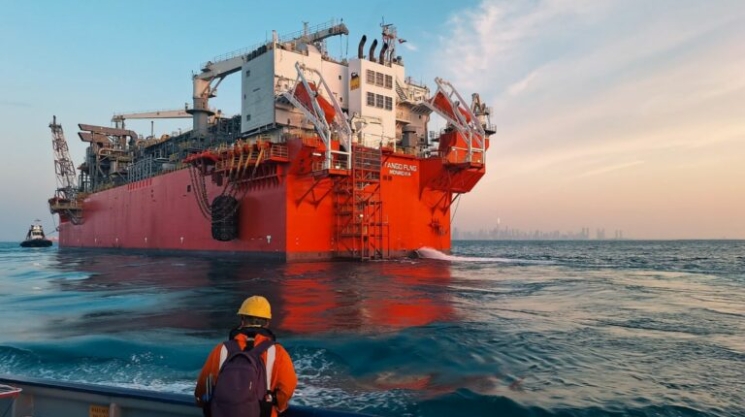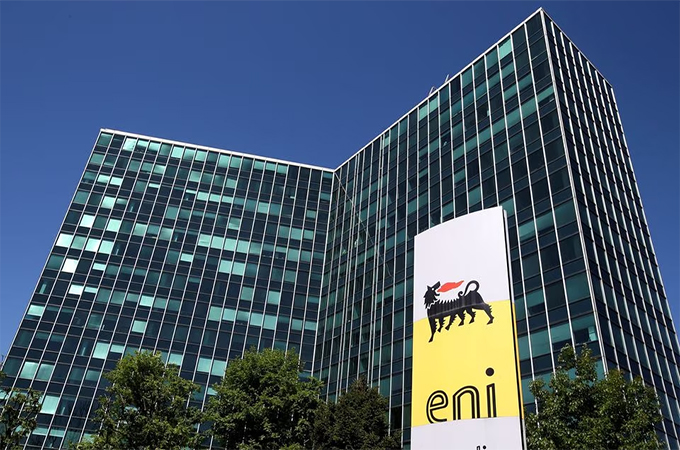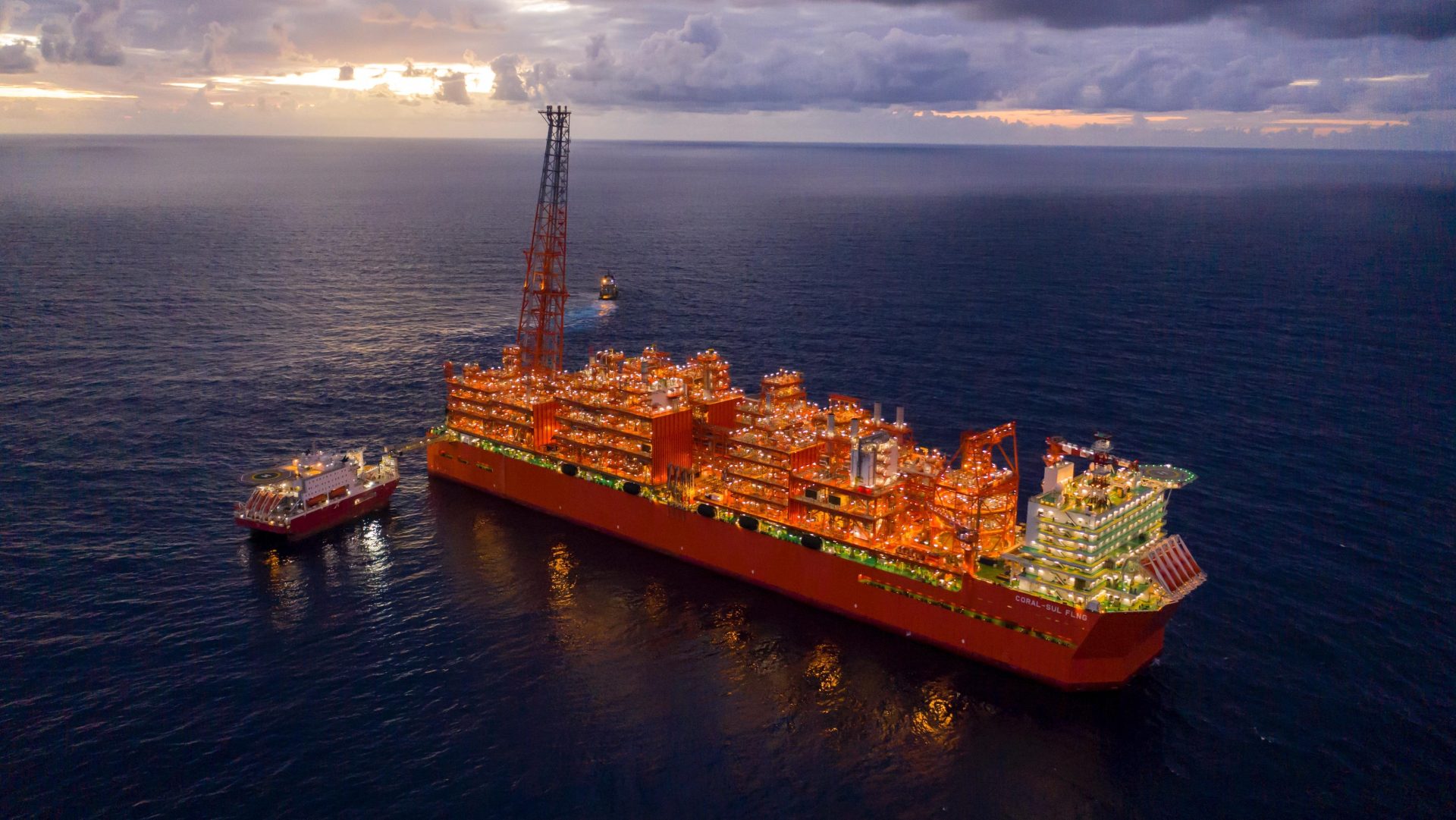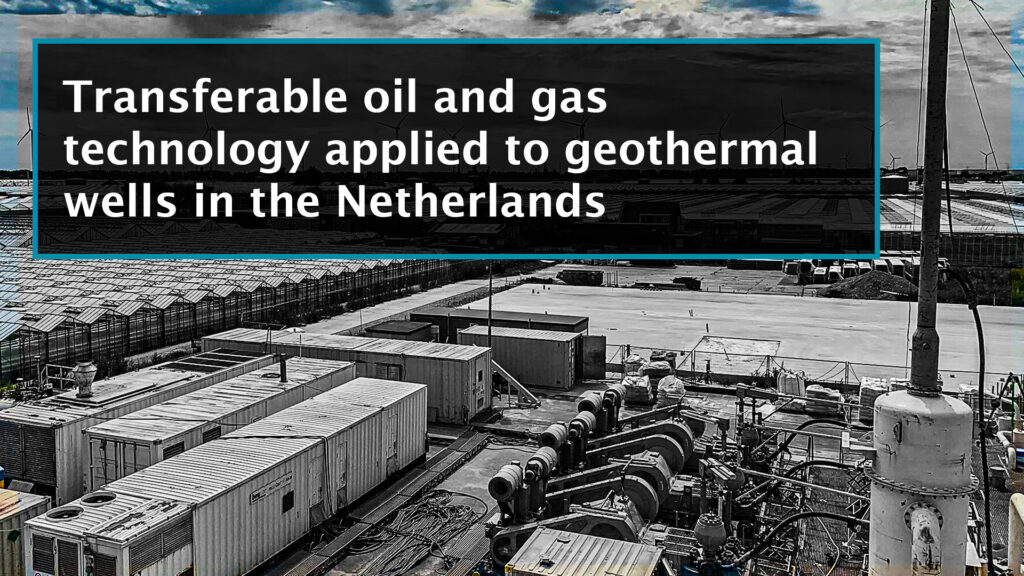
The Greenport Westland-Oostkand area is a sizeable geothermal district heating project near Maasdijk, Netherlands. Its master plan comprises 153 doublets spread over a 170 km2 area. Upon completion, it has the potential to provide 25% of Greenport’s greenhouses with heat for 30 years. A leading energy services provider, Expro, was awarded a ten-well tubing conveyed perforation (TCP) project for Greenport Westland-Oostkand’s geothermal district heating initiative. The project consists of five pairs of wells, each with specific target sandstones.
Within this area, there are two target sandstones within several wells drilled:
Delft – shallower, cleaner (~50m), with ~150m gap in between,
Alblasserdam – deeper, less clean, thicker (~150m)
Some of those wells experienced sand production and well integrity challenges. The current design utilized familiar oilfield well construction and cementing; however, it differentiates with Glass Reinforced Epoxy (GRE) lined casing to protect from highly corrosive salt water. The plan was to use an oilfield completion method that consists of a TCP system conveyed on Coiled Tubing (CT) using a Dynamic Underbalance technique (DUB) to provide uniform wellbore underbalance at the time of firing for optimal perforation tunnel cleaning.
Expro was required to run long intervals of large OD perforating guns with high-shot density on small-diameter Coiled Tubing, and it was essential to ensure the successful and safe deployment, firing, and retrieval of an extended bottom hole assembly (BHA). The perforating guns had an outer diameter of 114 mm (4.5 in) and a high shot density of 39 shots per meter (12 shots per foot). The Coiled Tubing had a small outer diameter of 50.8 mm (2.00 in), small American Macaroni Tubing (AMT) threads with a diameter of 38.1 mm (1.50 in), and low tensile strength of 42,000 lbs.
The Reservoir Engineering team took remedial measures to address this challenge. Shock modeling was performed using PulseFrac to evaluate and ensure the successful deployment, firing, and retrieval of the long BHA on Coiled Tubing. By conducting this analysis, the team aimed to mitigate potential risks and uncertainties associated with the Coiled Tubing operations, supporting the project’s overall operational success and safety.
The challenge was ensuring the successful and safe deployment, firing, and retrieval of the long bottom hole assembly (BHA) on Coiled Tubing (CT). Furthermore, managing the risk associated with two independent rig set-ups, each requiring different lifting, handling, risk assessment, and personnel competencies and training, posed a significant challenge.
Expro presented this case study as a technical paper at the recent Geothermal Rising conference and can provide more details upon request.
About Expro
Working for clients across the well life cycle, Expro is a leading provider of energy services, offering cost-effective, innovative solutions and what the Company considers to be best-in-class safety and service quality. The Company’s extensive portfolio of capabilities spans well construction, well flow management, subsea well access, and well intervention and integrity solutions.
With roots dating to 1938, Expro has approximately 7,800 employees and provides services and solutions to leading exploration and production companies in both onshore and offshore environments in approximately 60 countries. For more information, please visit and connect with Expro on X (formerly Twitter) @ExproGroup and LinkedIn @Expro.

